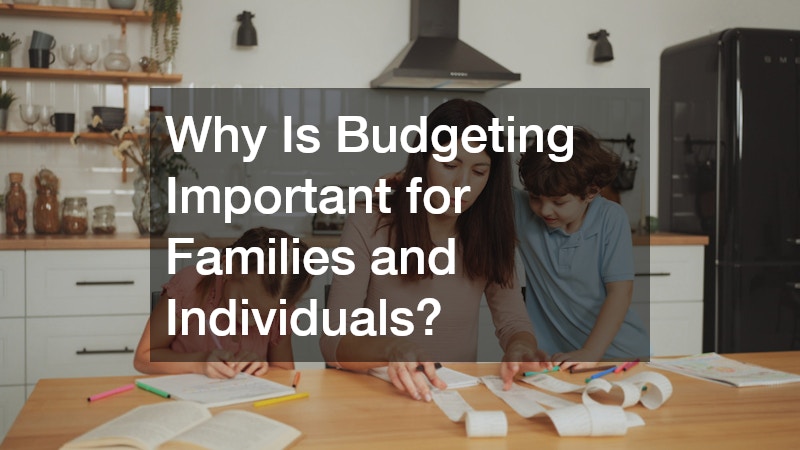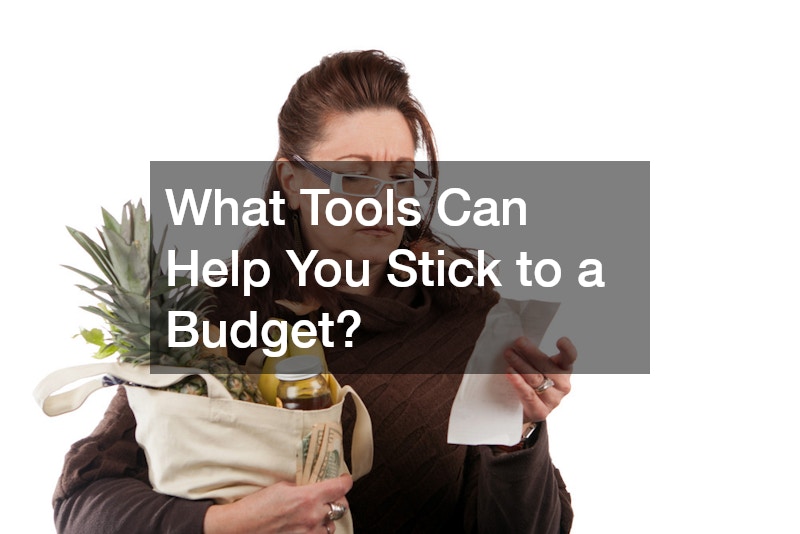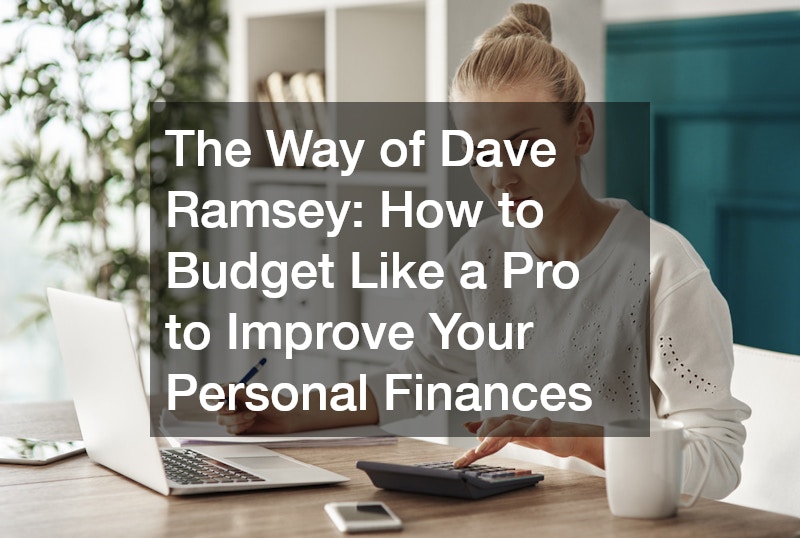
If you’ve ever felt overwhelmed by bills, confused by where your paycheck disappears, or anxious about your financial future, you’re not alone. Budgeting is one of the most important skills for achieving financial peace—and few people have popularized practical budgeting like Dave Ramsey. Known for his no-nonsense approach to personal finance, Ramsey offers a simple yet powerful strategy that can help families and individuals take control of their money.
This article breaks down how to budget like a pro using Dave Ramsey’s method so you can confidently build a stronger financial future.
Why Is Budgeting Important for Families and Individuals?

Every solid financial plan begins with a budget. For families and individuals alike, budgeting ensures that every dollar has a purpose and helps avoid financial stress. Whether you’re saving for a home, managing debt, or trying to make ends meet, a budget helps bring clarity and control to your spending. Without one, it’s easy to fall into the trap of living paycheck to paycheck—never quite knowing where your money went.
Dave Ramsey’s budgeting method emphasizes intentional living. Instead of being reactive with your finances, you’re proactive. When you create a plan for your income, you gain the power to prioritize needs, eliminate wasteful expenses, and focus on financial goals.
What Is the Dave Ramsey Budgeting Method?
At the heart of Dave Ramsey’s budgeting philosophy is a system called zero-based budgeting. This approach ensures that every dollar you earn is assigned a specific job—whether it’s paying bills, saving, giving, or covering groceries.
Here’s how to follow the Dave Ramsey budget plan:
- Start with your income: List all sources of monthly income.
- List your expenses: Categorize essentials like housing, utilities, food, transportation, debt, and savings.
- Give every dollar a job: Your income minus your expenses should equal zero. If you have leftover money, assign it to savings or debt payments.
- Track your spending daily: Update your budget frequently so you stay on track.
- Adjust monthly: Life changes, and your budget should too. Review and revise each month.
This method helps families and individuals alike stay focused on their goals and avoid unnecessary debt.
How to Set Up Your Budget Like Dave Ramsey
Getting started can feel intimidating, but budgeting becomes easier with consistency. Follow these steps to implement Dave Ramsey’s approach:
1. Create a Monthly Income and Expense Worksheet
Write down all your income sources (e.g., salaries, freelance work, side gigs) and fixed expenses (e.g., rent, insurance). Then list variable expenses (e.g., groceries, gas).
2. Prioritize the Four Walls
Ramsey often talks about covering the “Four Walls” first:
- Food
- Utilities
- Shelter
- Transportation
These are non-negotiables. Once these are covered, you can begin allocating funds to other categories like savings, debt, and discretionary spending.
3. Build an Emergency Fund
Before aggressively attacking debt, Ramsey recommends saving $1,000 for emergencies. This prevents you from going further into debt when life throws a curveball.
4. Use the Dave Ramsey Snowball Method for Debt
The Dave Ramsey Snowball method is a powerful debt repayment strategy. List your debts from smallest to largest, regardless of interest rate. Pay off the smallest one first while making minimum payments on the rest. Once it’s gone, roll that payment into the next smallest debt. This momentum-building tactic helps many stay motivated and crush debt faster.
Where Can You Cut Costs in Your Budget?
Even with a solid plan, many families and individuals struggle with overspending. The key is learning how to identify waste and make smarter choices. Ask yourself:
- Are there subscriptions I don’t use?
- Can I reduce dining out and cook more at home?
- Is there a cheaper internet or phone plan available?
- Do I impulse-buy without thinking?
Small changes can free up hundreds of dollars each month. Reallocating these savings toward your goals—like debt payoff or emergency savings—makes a huge impact over time.
Pro tip: Use cash envelopes for categories that are hard to control (like dining out or entertainment). When the envelope is empty, you’re done spending for the month.
What Tools Can Help You Stick to a Budget?

Staying consistent with your budget is easier when you use tools that support your goals. Dave Ramsey recommends EveryDollar, a free budgeting app that follows his zero-based method. Other tools include:
- Spreadsheets: For those who like manual tracking.
- Bank alerts: Set up text alerts to monitor spending limits.
- Cash envelopes: Great for tactile spenders.
- Financial coaches: Helpful for families struggling to get on the same page.
Regardless of the tool, the key is tracking. When you track your expenses, you become aware of where your money goes—and that awareness leads to better decisions.
How Can Budgeting Like Dave Ramsey Improve Your Financial Future?
Budgeting isn’t just about saying no to lattes or pinching pennies. It’s about creating a vision for your future and making a plan to get there. When you follow Dave Ramsey’s method, you gain peace of mind knowing that:
- Your bills are covered.
- You’re actively eliminating debt.
- You’re building savings for emergencies and retirement.
- You’re living within your means.
Over time, budgeting becomes a habit. And habits lead to lifestyle changes. Families report fewer money fights. Individuals feel more secure and confident. And everyone enjoys the freedom that comes from financial control.
Final Thoughts
Learning how to budget like Dave Ramsey isn’t about perfection—it’s about progress. Whether you’re a family trying to keep up with rising costs or an individual aiming for financial independence, his method provides a clear, practical path forward. When you embrace zero-based budgeting, prioritize needs, and commit to a plan, you’ll not only survive financially—you’ll thrive.
